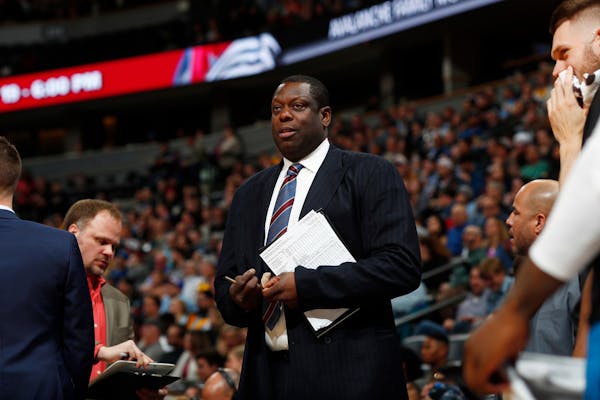Karl-Anthony Towns could not crack the All-NBA teams this season, and that will have ramifications for the extension the Timberwolves star signed in September and for the team's salary cap.
If Towns had made one of the teams, it would have been his second All-NBA honor while playing on his rookie contract. That would have triggered the collective bargaining agreement's so-called "Rose Rule," named for Derrick Rose, which states that a player of Towns' amount of service time could make up to 30% of the salary cap for a single season as opposed to 25% if, among other caveats, he was named MVP once, an All-Star starter or All-NBA twice in his career up until that point.
Since Rudy Gobert of the Jazz beat Towns out for the final slot, Towns' contract will be worth approximately $158 million over five years instead of approximately $190 million. Gobert received 89 points in the voting, Towns 20.
Nuggets center Nikola Jokic and 76ers center Joel Embiid were named to the first and second teams, respectively.
Towns' salary for next season would have increased from $27.25 million to $32.7 if he made an All-NBA team. The Wolves still have a difficult salary cap situation for next season with around $109 million committed to eight players with the cap set to be $109 million. The luxury tax will be $132 million. President Gersson Rosas will have to figure out how to fill the roster and what to do with restricted free agent Tyus Jones.
CHRIS HINE
